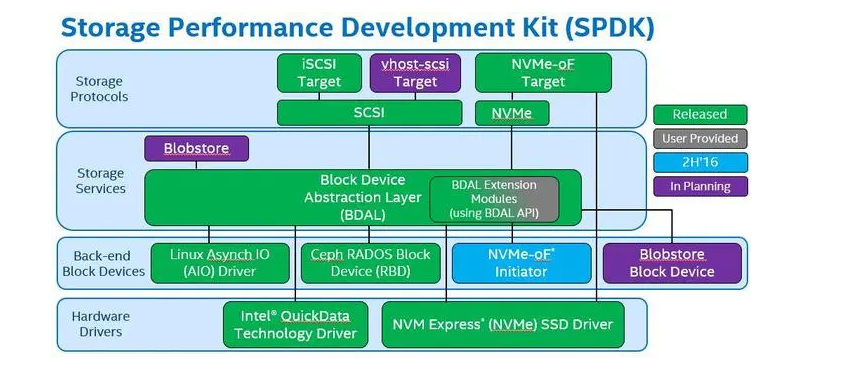下面是一个简单的示例,展示了如何在example_spdk_bdev_open_blob_complete()函数之后实现对Blob的写入和读取操作:
#include <stdio.h>
#include <stdlib.h>
#include <string.h>
#include "spdk/bdev.h"
#include "spdk/blob_bdev.h"
struct my_context {
struct spdk_blob *blob;
char buffer[4096];
};
void write_complete(void *cb_arg, int bserrno)
{
if (bserrno) {
printf("Write failed with error: %d\n", bserrno);
} else {
printf("Write completed successfully.\n");
}
struct my_context *ctx = (struct my_context *)cb_arg;
// 在这里可以继续进行其他操作或者释放资源
}
void read_complete(void *cb_arg, int bserrno)
{
if (bserrno) {
printf("Read failed with error: %d\n", bserrno);
return;
}
struct my_context *ctx = (struct my_context *)cb_arg;
printf("Read completed successfully. Data: %s\n", ctx->buffer);
// 在这里可以继续进行其他操作或者释放资源
}
void example_spdk_bdev_open_blob_complete(struct spdk_blob_store *bs, void *cb_arg, int rc)
{
if (rc != 0) {
printf("Failed to open blobstore with error code: %d\n", rc);
return;
}
struct spdk_bs_dev *bs_dev = spdk_bdev_get_bs_dev(bs);
struct my_context *ctx = malloc(sizeof(struct my_context));
if (!ctx) {
printf("Memory allocation failed.\n");
return;
}
ctx->blob = NULL;
spdk_bs_create_blob(bs, example_spdk_bs_create_blob_complete, ctx);
}
void example_spdk_bs_create_blob_complete(void *cb_arg, spdk_blob_id blobid, int bserrno)
{
if (bserrno) {
printf("Failed to create blob with error code: %d\n", bserrno);
return;
}
struct my_context *ctx = (struct my_context *)cb_arg;
ctx->blob = spdk_bs_open_blob(blobid);
if (!ctx->blob) {
printf("Failed to open blob.\n");
return;
}
// 写入数据到Blob
strcpy(ctx->buffer, "Hello, SPDK!");
spdk_blob_io_write(ctx->blob, ctx->buffer, 0, sizeof(ctx->buffer), write_complete, ctx);
// 从Blob读取数据
memset(ctx->buffer, 0, sizeof(ctx->buffer));
spdk_blob_io_read(ctx->blob, ctx->buffer, 0, sizeof(ctx->buffer), read_complete, ctx);
}
int main()
{
// 初始化SPDK等操作,省略
struct spdk_bs_dev *bs_dev = ...; // 获取到要打开的设备
struct my_context *ctx = malloc(sizeof(struct my_context));
if (!ctx) {
printf("Memory allocation failed.\n");
return -1;
}
ctx->blob = NULL;
spdk_bdev_open_ext(bs_dev,
NULL,
true,
example_spdk_bdev_open_blob_complete,
ctx);
// 其他操作和事件处理,省略
return 0;
}
上述示例代码中的write_complete()和read_complete()是写入和读取完成后的回调函数。你可以在这里进行对应的处理。example_spdk_bdev_open_blob_complete()函数是在打开Blob之后的回调函数,用于创建或打开Blob,并触发写入和读取操作。请根据实际需求修改代码中的设备打开和操作逻辑。
这个示例只是简单展示了一种使用SPDK Blob API进行写入和读取操作的方式,你可以根据具体情况自行扩展和优化代码。同时,请参考SPDK文档以获取更详细的信息和使用方法。
内容由零声教学AI助手提供,问题来源于学员提问





















